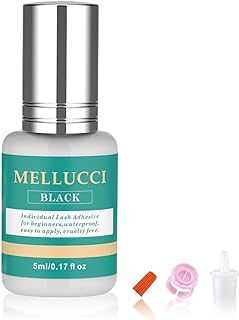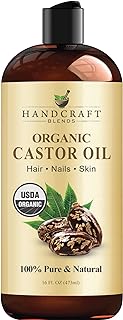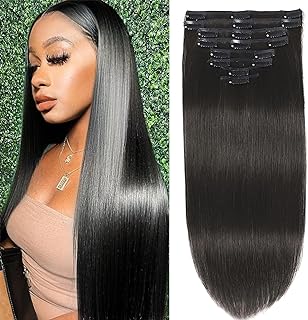5 important factors worth considering when looking for the best chemical free sunscreen kids
Choosing the best chemical-free sunscreen for kids requires careful thought to ensure it works well and is safe. It’s important to protect children’s skin from the sun’s rays without using harmful chemicals. Parents need to consider things like broad-spectrum protection, SPF levels, and the ingredients in the sunscreen. This decision can be overwhelming, but this article will help parents understand what to look for when picking a chemical-free sunscreen for their kids. It’s important to make an informed and responsible choice that will keep children’s skin safe.
See our guide to the best chemical free sunscreen kids.
Ingredients
When choosing a chemical-free sunscreen for kids, it’s important to carefully check the ingredients. As a parent, it’s vital to make sure the sunscreen you pick for your child doesn’t have harmful chemicals. Mineral-based sunscreens with ingredients like zinc oxide or titanium dioxide can provide good protection without exposing your child’s skin to risks. These minerals create a barrier that reflects UV rays away from the skin, giving reliable sun protection without using chemicals like oxybenzone or octinoxate.
It’s also important to look for organic ingredients in your child’s sunscreen. This not only keeps them healthy but also helps the environment. Choosing products with organic ingredients protects your child’s skin and supports eco-friendly practices. Try to find sunscreens with organic ingredients like coconut oil, shea butter, or aloe vera, which not only nourish and hydrate the skin but also help reduce the impact on the environment. By being mindful of the ingredients in the sunscreen you choose for your child, you show that you care about their well-being and support safer, healthier choices that align with your values as a caring consumer and parent.
SPF level
When looking for chemical-free sunscreen for kids, it’s important to consider not only avoiding harmful chemicals but also the level of SPF. Choosing a higher SPF level provides extra protection against harmful UV rays, reducing the risk of sunburn and skin damage in the long run. While chemical-free sunscreens are gentle on the skin, a sufficient SPF level ensures full protection when kids are out in the sun.
Parents should find a balance between choosing a sunscreen without harsh chemicals and one that offers enough sun protection. Look for chemical-free sunscreens with SPF 30 or higher to effectively guard against both UVA and UVB rays. By prioritizing both factors, parents can protect their children’s skin from sun damage while being mindful of the ingredients in the products they use. Remember, it’s important to think about both the ingredients in the sunscreen and the SPF level to ensure complete care for your child’s skin.
Broad spectrum protection
Selecting sunscreen for our kids is important, and we should focus on getting broad-spectrum protection. Chemical-free sunscreen helps shield our children from harmful UV rays and keeps their delicate skin safe from irritating chemicals. Choosing a broad-spectrum sunscreen helps defend against both UVA and UVB rays, which is crucial in preventing sunburns, skin damage, and long-term health risks.
Chemical-free sunscreen provides a reliable defense without the potential side effects of chemicals. Going for broad-spectrum protection means we are looking out for our children’s well-being by reducing their exposure to harmful rays that can cause skin aging, sunburn, and an increased risk of skin cancer. Prioritizing broad-spectrum protection with chemical-free sunscreen helps nurture our child’s skin health while teaching them important sun safety habits for the future.
Water resistance
When choosing a sunscreen for kids, it’s important to consider if it’s water-resistant. A water-resistant formula will keep your child protected while they swim, play in the water, or sweat in the sun. Children are active, and a sunscreen that can handle water exposure will provide continuous protection without needing to be reapplied often, which can give parents peace of mind.
Chemical-free sunscreens that are water-resistant are a great option for parents who want to prioritize their child’s skin health while still enjoying outdoor activities. By choosing a sunscreen that is both chemical-free and water-resistant, you can ensure your child is protected from UV rays even during water play, making it a smart choice for all-day sun protection. Investing in a high-quality water-resistant sunscreen not only prevents sunburn but also helps establish healthy sun protection habits for the future.
Allergy considerations
When choosing sunscreen for kids with allergies, it’s important to be careful to protect their skin from the sun while also keeping it safe. Natural, hypoallergenic options can help prevent bad reactions, so parents should consider them. Ingredients like zinc oxide and titanium dioxide can block harmful UV rays without irritating sensitive skin.
Picking allergen-free sunscreen not only prevents sunburn but also lowers the risk of allergic reactions. Choosing products without fragrance, parabens, or harsh chemicals can help avoid skin irritations and allergies, keeping your child’s skin healthy overall. By focusing on hypoallergenic sunscreens, parents can teach their kids good habits for protecting their skin from the sun, while also caring for their skin.
It’s important to consider allergies when selecting sunscreen to protect your child’s skin from the sun. This approach is a thoughtful and proactive way to promote their skin health and develop good skincare habits early on.
Conclusion
As parents, it’s important to take care of our children’s skin and keep them safe from the sun. Using chemical-free sunscreen is not just a preference, but a way to protect our kids from harmful ingredients. By choosing natural and organic options, we can protect our children from the sun and avoid any risks from synthetic chemicals. Switching to chemical-free sunscreen is an easy way to help our children stay healthy and safe in the long run. Want more info on gas propane heaters, check the best gas propane heaters.



